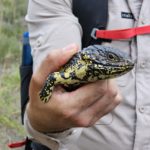Today, March 20th, marks the International Day of Happiness 2024, a day which aims to make people around the world realise the importance of happiness within their lives.
Being happy is arguably the greatest human goal. Whatever else you are interested in – getting rich, playing a tune on your guitar, growing orchids in the garden, coffee with a friend, or saving lives through humanitarian aid – the ultimate motivation is to increase happiness. Children are no exception, and while how they spend their time might look different to adults, the quest for happiness is seemingly universal.
Sadly, reported happiness amongst children and teens has been declining in Australia over recent years. The Wellbeing in Learning and Development lab (WiLDlab) recently published their 2023 Resilient Youth report based on responses of almost 140,000 Australian school students. “Sadly, over a quarter of primary students and one third of secondary student report symptoms of high depression, anxiety or both” said WiLDlab lead researcher Dr Mark Kohler. However, it is not all bad news: “The vast majority of children and teens still report having fun at school and with friends, as well as having supportive families. A key question is how we can better leverage these positive aspects of childrens’ lives to improve overall happiness and turn the tide on the negative trends our report shows” says Kohler.
 A possible approach is to consider how much time children get to engage with the natural world. “We know that spending time in nature is linked to feeling more connected to nature, and that nature connectedness is linked to feeling happier in adults”. One University of Adelaide study found a similar link in children overall.
A possible approach is to consider how much time children get to engage with the natural world. “We know that spending time in nature is linked to feeling more connected to nature, and that nature connectedness is linked to feeling happier in adults”. One University of Adelaide study found a similar link in children overall.
Information collected in the 2023 Resilient Youth survey but not published in the report includes the levels of nature connection that children experience. “This is the largest survey of nature connection in children we are aware of, and it shows quite high nature connection in younger children, which really drops during middle childhood and levels out across the teen years”. Furthermore, “The greater nature connection children report also predicts greater satisfaction with life, more hopefulness, and less depression and anxiety”.
When asked if they could magically do anything to support the wellbeing of young people, a large number of children mentioned nature, including opportunities to get out in nature more, reducing pollution, and connecting with others outdoors. “Make friends and grow nature” said one 9 years old, with a 10 year old recommending “Everyone should have the chance to be out in nature safely”. Or as a 16 year old suggests, we should “…live in nature like Avatar… we are so disconnected”.
While it might not be a panacea for happiness, connecting with our natural world is likely to help. Amidst rapidly increasing urbanisation and use of technology in our lives, careful thought about how to promote and enable all people to enjoy time outdoors in nature must be a priority.
Further reading: https://www.adelaide.edu.au/newsroom/news/list/2024/02/06/young-australians-are-still-struggling











